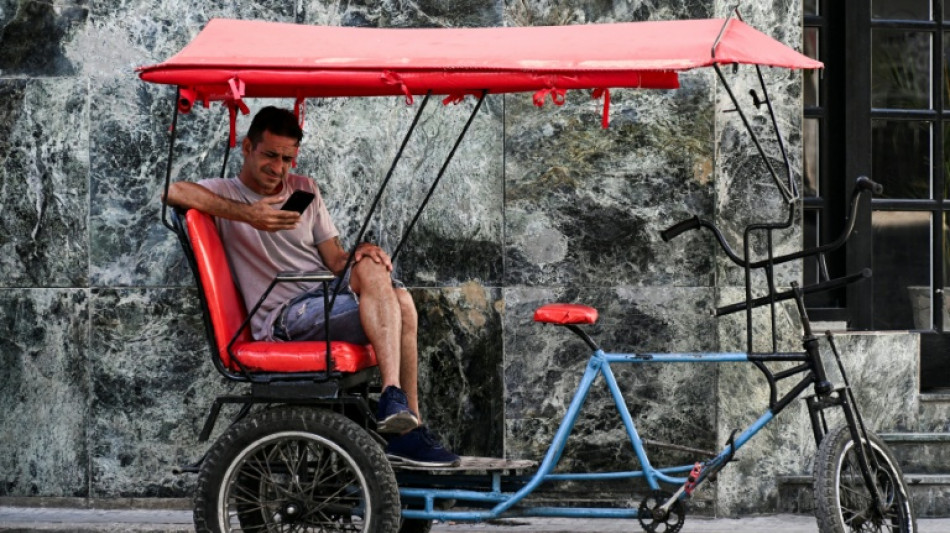
-
 Post-it maker 3M faces Belgian trial over 'forever' chemicals
Post-it maker 3M faces Belgian trial over 'forever' chemicals
-
UK comedian Russell Brand pleads not guilty to new rape, assault charges

-
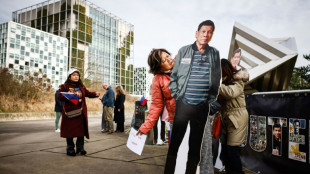 Duterte drew up 'death lists', boasted about murders: ICC prosecutor
Duterte drew up 'death lists', boasted about murders: ICC prosecutor
-
UK govt urged to release documents linked to ex-prince Andrew

-
 Rights group slams treatment of viral Japanese monkey
Rights group slams treatment of viral Japanese monkey
-
Inside the bunker where Zelensky led response to Russian invasion

-
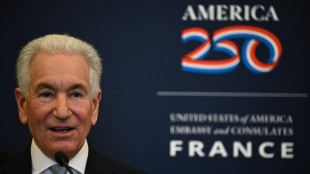 France demands explanation from US envoy over 'surprise' no-show
France demands explanation from US envoy over 'surprise' no-show
-
Putin failed to achieve goals in Ukraine, Zelensky says on war anniversary
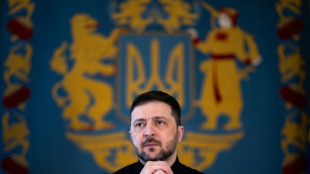
-
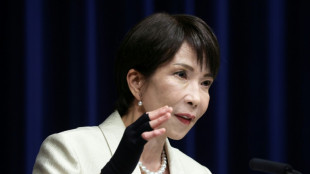 China tightens Japanese trade restrictions as spat worsens
China tightens Japanese trade restrictions as spat worsens
-
Ukraine war exhibition opens at Berlin Nazi bunker museum
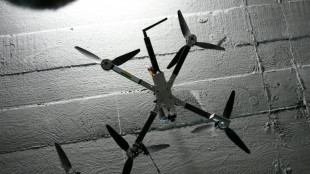
-
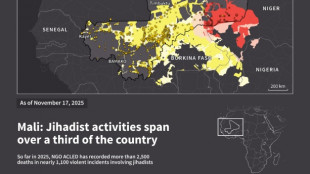 Jihadist threat puts eastern Senegal on edge
Jihadist threat puts eastern Senegal on edge
-
Kim Yo Jong: the powerful sister behind North Korea's supreme leader

-
 North Korea ruling party promotes Kim Jong Un's younger sister
North Korea ruling party promotes Kim Jong Un's younger sister
-
Mexico's Jalisco cautiously tries returning to normal after cartel violence
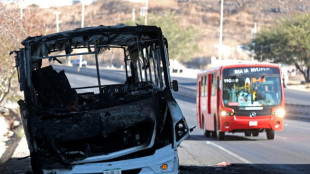
-
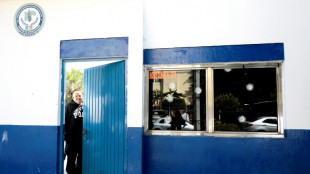 Mexico's violence-hit Guadalajara to host World Cup games
Mexico's violence-hit Guadalajara to host World Cup games
-
Mourinho's Bernabeu homecoming upended by suspension, racism row

-
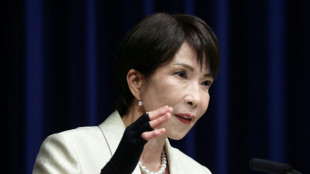 China targets Japanese companies over military ties
China targets Japanese companies over military ties
-
Griezmann in talks to join MLS side Orlando City: source

-
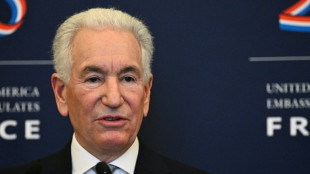 France to revoke US envoy's govt access after summons no-show
France to revoke US envoy's govt access after summons no-show
-
Spurs overpower Pistons in clash of NBA's form teams

-
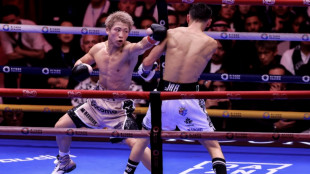 Inoue to fight Nakatani in Tokyo in May: reports
Inoue to fight Nakatani in Tokyo in May: reports
-
Canada PM to push trade, rebuild fractured ties in India trip
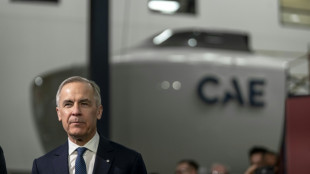
-
 Asian markets mixed as traders weigh AI and tariffs outlook
Asian markets mixed as traders weigh AI and tariffs outlook
-
Votes may 'melt like snow': Reform, Greens eye Labour UK bastion

-
 Venezuela says exiles welcome to return following mass amnesty
Venezuela says exiles welcome to return following mass amnesty
-
Australia buys parts for future AUKUS sub reactor

-
 Ukraine marks four years since Russian invasion
Ukraine marks four years since Russian invasion
-
Brazil court to try politicians over hit on black councilwoman

-
 Interim president says Venezuelans welcome to return after amnesty law
Interim president says Venezuelans welcome to return after amnesty law
-
Man kills police officer in Moscow train station blast

-
 Despite drop in 2025, Russian oil exports exceed pre-war volumes: report
Despite drop in 2025, Russian oil exports exceed pre-war volumes: report
-
Kingbull Launches the Ranger, a Long-Range Dual-Suspension Fat-Tire E-Bike Starting in the $700 Range

-
 Amphastar Announces FDA Approval for Ipratropium Bromide HFA
Amphastar Announces FDA Approval for Ipratropium Bromide HFA
-
Simulab Launches TraumaMan(R) System Ultrasound Module for Realistic Trauma Training

-
 Bytek Joins the Google Cloud Ready - BigQuery Program
Bytek Joins the Google Cloud Ready - BigQuery Program
-
Formation Metals Intersects 0.95 g/t Au over 61.1 Metres, including 1.68 g/t Au over 26.5 Metres at the Advanced N2 Gold Project; Bulk-Tonnage Gold Target Identified with 8 Kilometres of Strike to Explore

-
 Bolt Metals Announces Closing of Fully Subscribed Private Placement
Bolt Metals Announces Closing of Fully Subscribed Private Placement
-
InterContinental Hotels Group PLC Announces Transaction in Own Shares - February 24

-
 Nikon Expands Popular Monarch and Prostaff Binocular Lines
Nikon Expands Popular Monarch and Prostaff Binocular Lines
-
Australian PM seeks removal of UK's Andrew from line of succession
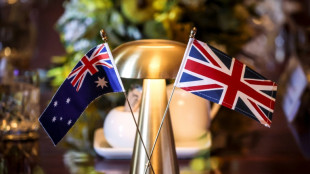
-
 Carrick hails 'ruthless' Man Utd match-winner Sesko
Carrick hails 'ruthless' Man Utd match-winner Sesko
-
N.Korea leader's sister promoted at party congress

-
 The key to taking down Mexico's most-wanted narco? His girlfriend
The key to taking down Mexico's most-wanted narco? His girlfriend
-
Winter storm blankets US northeast as travel bans imposed

-
 Super-sub Sesko fires Man Utd to win at Everton
Super-sub Sesko fires Man Utd to win at Everton
-
YouTube exec says goal was viewer value not addiction

-
 Panama wrests control of canal ports from Hong Kong group
Panama wrests control of canal ports from Hong Kong group
-
Trump denies top US officer warned of Iran strike risks

-
 Mayweather to fight Pacquiao in Las Vegas in September
Mayweather to fight Pacquiao in Las Vegas in September
-
US stocks tumble on tariff fog, worries over AI
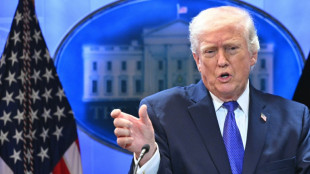

Betraying the revolution: Cuban students reject dollarization
It took a steep hike in mobile internet tariffs to unleash a rebellion among Cuban students on a scale unseen since the 1959 revolution that brought Fidel Castro to power.
The new pricing structure, which came into effect on May 30, punished people who exceeded their meager monthly data limit of six gigabytes with steep fees.
On top of that, it made rates cheaper to top up in dollars than in Cuba's own currency, the peso.
State telecommunications company Etecsa said the increases were necessary to fund investments in the mobile network.
But it was also seen as a ploy by the cash-strapped communist government to bring in much-needed foreign currency.
Students in particular reacted angrily to the measure, which not only makes it harder for them to stay connected, but deepens the chasm on the island between dollar-toting haves and peso-using have-nots.
In rare scenes throughout the one-party state, students at several universities organized a boycott of classes, and students' unions issued statements rejecting the reform.
Anxious to avoid a repeat of the protests that rocked the island in July 2021, when thousands of people demonstrated over shortages of basic goods, the government has taken a conciliatory approach.
The Havana students' union this week announced the creation of a discussion group with students, teaching staff from a dozen university faculties in Havana, and Etecsa's representatives.
But on social media, students say they have come under pressure from security forces to fall in line.
In a video shared on social media, which AFP was unable to verify, a medical student claims she was threatened by a state security agent on campus with being taken to "an official place where you won't be able to use your phone."
The protests have ballooned into a wider mobilization over the subtle dollarization of the Cuban economy.
Students at the University of Holguin's law faculty in eastern Cuba issued a statement denouncing the new mobile tariffs as "elitist and classist" and said the growing shift towards dollars was an affront to the principle of equal rights.
In another viral video, a medical student at the University of Havana warned that the currency of the United States was becoming the country's "flagship currency."
For opposition activist Manuel Cuesta Morua, the protests mark a return to the kind of activism last seen on campuses in the 1950s, which forged the revolutionary careers of Castro and others.
Today's students are spearheading "a revolution within the revolution," Cuesta Morua said, adding that their tirades against inequality marked a return to the "original discourse of a revolution that became militarized and more conservative" over time.
- Not against communism -
The row over the internet fees comes amid the emergence of a two-speed society on the communist island, which is mired in its worst economic crisis in 30 years.
Inflation rose by 190 percent between 2018 and 2023, according to official figures, eroding the value of the peso against the dollar.
Food, fuel and medicine are all in short supply.
Cubans who receive dollar remittances from relatives abroad fare better, with well-stocked dollar payment grocery stores and gas stations only too happy to serve them.
- 'Last straw' -
In January, the government announced a partial dollarization of the economy, claiming it wanted to get its hands on some of the greenbacks.
But mobile top-ups in dollars were "the last straw" for many, according to Tamarys Bahamonde, a Cuban economist at American University in Washington.
In a joint manifesto, students from various faculties in Havana made it clear they were not "opposed to the government nor the revolution but to specific policies that betray its (egalitarian) ideal."
For Bahamonde, the crisis underscores the widening gulf between Cuba's decision-makers and its citizens.
To win over the students, Etecsa last week announced that they would be allowed two monthly top-ups at the basic rate of 360 pesos ($3), compared with one for the rest of the population.
But the students rejected the offer, saying they wanted everyone to benefit.
For activist Cuesta Morua, their reaction was proof that young Cubans, rather than the government, have become the voice of the people.
"It is the students... who are representing the country's concerns."
L.Harper--AMWN



